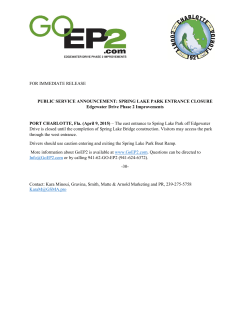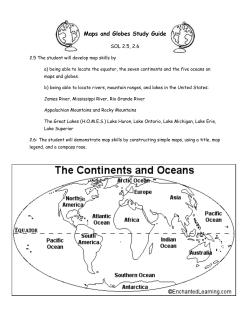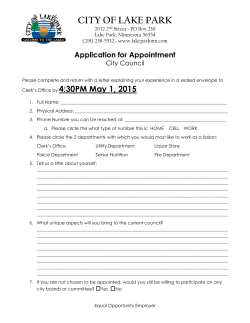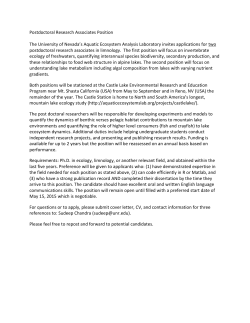
press release and full letter to EPA.
Regional Groups Urge U.S. EPA to address CAFO-related impacts to the Western Lake Erie Watershed Today, a coalition of 30 environmental, farm, grass-roots and other organizations sent the attached letter to U.S. EPA Administrator Gina McCarthy asking her to initiate urgent protective actions for Lake Erie, including declaring the western basin an impaired watershed. These groups are urging the Administrator to address the harmful impacts of manure pollution by concentrated animal feeding operations (CAFOs) on the Lake. CAFOs are large-scale agricultural facilities that confine hundreds to thousands of animals, or millions of poultry, in industrial environments and they generate massive amounts of nutrient-rich animal waste. CAFOs are a relatively new, but largely unregulated, source of agricultural nutrient pollution in the Western Basin of Lake Erie. The CAFO industry has expanded rapidly in Ohio, Michigan and Indiana during the past two decades. Every year, CAFOs are increasing in number and size which means they are also generating significantly more waste and disposing it over more limited areas. “Ohio submitted a Nutrient Reduction Strategy Report to U.S. EPA which established that effective manure management is critical to see water quality improvements and measurable reductions in nutrient loadings.” said Vickie Askins, spokesperson for the Ohio Environmental Stewardship Alliance. “However, recent legislative efforts in Ohio have exempted CAFOs from new restrictions and have also failed to close existing loopholes in State laws for CAFOs.” This coalition believes the drinking water crisis in Toledo should have been a wake-up call to the potential impact massive amounts of nutrient-rich animal waste pose to the safety of Lake Erie. Consequently, the aforementioned groups believe taking a regional approach is imperative because of the cumulative impact CAFO waste in all three states is having on the western Lake Erie basin. "This is not just an Ohio problem, because a large amount of livestock waste is produced and spread in the Michigan and Indiana portions of this watershed, too. While different steps are being taken to address nutrient loadings in Lake Erie, this is a necessary and important step towards uniformity and accountability within the entire Western Lake Erie basin” said Pam Taylor of the Environmentally Concerned Citizens of South Central Michigan. Therefore, this coalition has recommended banning the winter application of manure, requiring valid nutrient management plans for all CAFOs, and establishing numeric nutrient standards for Ohio, Michigan and Indiana. These regional measures should be instituted immediately. Barbara Sha Cox, spokesperson for the grass-roots Indiana CAFO Watch, said “This is a vital step in protecting the water. Clean water should be the goal of all residents and farmers. Our most valuable resource must be preserved for the future generations.” ### Contacts: Vickie Askins, Ohio Environmental Stewardship Alliance (419-655-2057) vaaskins@wcnet.org Barbara Sha Cox, Indiana CAFO Watch (765-962-2184) barbarasha1@msn.com Pam Taylor, Environmentally Concerned Citizens of South Central Michigan ptaylor001@msn.com April 27, 2015 Pam Taylor, Environmentally Concerned Citizens of South Central Michigan ptaylor001@msn.com April 27, 2015 April 27, 2015 Administrator Gina McCarthy mccarthy.gina@epa.gov Environmental Protection Agency Ariel Rios Building 1200 Pennsylvania Avenue, N.W. Washington, D.C. 20460 For immediate regional action: Request for Western Lake Erie Basin to be declared an impaired watershed Dear Administrator McCarthy, Lake Erie is a vital resource for millions of residents and visitors yet it has been repeatedly threatened by Harmful Algal Blooms (HABs) which produce potentially deadly toxins. Last August, these toxins left almost 500,000 people in northwest Ohio and southeast Michigan without safe drinking water. Sadly, no meaningful measures have yet been taken to reduce the levels of algaefeeding phosphorus in Lake Erie so there will almost certainly be another crisis this year, possibly with even more dire consequences. For that reason, the undersigned farm, environmental and grass-roots organizations are writing to thank you for supporting Ohio, Michigan and Indiana in addressing this enormous challenge – while at the same time, we are asking for your help. In order to initiate urgent protective action, we request that EPA declare the Western Lake Erie Basin an impaired watershed. There are many sources of nutrients fueling the HABs; however, agriculture is the major contributor of excess phosphorus loading in the western Lake Erie basin. For that reason, we also request EPA to focus on one relatively new, and largely unregulated, agricultural nutrient pollution threat we believe requires your urgent attention – concentrated animal feeding operations (CAFOs). The CAFO industry has rapidly expanded in Ohio, Michigan and Indiana during the past two decades – as have HABS in the western Lake Erie basin. Every year, CAFOs are increasing in number and size which means they are also generating significantly more waste and that waste requires disposal over more limited areas. These operations apply massive amounts of manure to farm fields that drain into the Western Basin. Therefore, taking a regional approach is imperative because of the cumulative impact CAFO waste is having on the western Lake Erie basin. For action in an impaired watershed, we ask that these regional measures be instituted immediately: • Ban the practice of manure application on frozen or snow-covered ground. • Require valid Nutrient Management Plans for all farms receiving manifested CAFO waste. • U.S. EPA should establish numeric nutrient water quality standards for Ohio, Michigan and Indiana since those states have failed to do so. Ban the practice of hauling manure into the western Lake Erie watershed from other watersheds. • The drinking water crisis in Toledo should be a wake-up call to the potential impact massive amounts of nutrient-rich animal waste poses to the safety of Lake Erie. While we appreciate that EPA is funding new projects and incentives to improve water quality, some actions could and should be taken immediately. We urge you to require all CAFOs in Ohio, Michigan and Indiana to comply with the common-sense provisions of the Clean Water Act and begin by banning one of the highestrisk practices, the application of CAFO waste on snow-covered or frozen ground. We urge EPA to designate the western Lake Erie basin as impaired and act without delay to address CAFO-related impacts to the watershed. The undersigned groups urgently request EPA to take these beginning actions to restore and ensure a healthy Lake Erie. Respectfully submitted: these beginning actions to restore and ensure a healthy Lake Erie. Respectfully submitted: Ohio Environmental Stewardship Alliance Environmentally Concerned Citizens of South Central Michigan Indiana CAFO Watch Food & Water Watch Socially Responsible Agriculture Project Organic Consumers Association Center for Food Safety Center for Health, Environment and Justice Ohio Farmers Union Hoosier Environmental Council Michigan Environmental Council Sierra Club Hoosier Chapter Sierra Club Michigan Chapter Sierra Club Ohio Chapter Northwest Neighborhood Alliance Williams County Alliance FreshWater Accountability Project Buckeye Forest Council Wall Lake Fishermans Association Save Maumee Steuben Lakes Environmental Consortium Dekalb County Citizens for Conservation Wood County Citizens Opposed to Factory Farms Science Alliance for Valuing the Environment (S.A.V.E.) Inc. Women Speak Out for Peace and Justice Earth Charter Indiana City Rising Farm Green Environmental Coalition Omega Fats Action Network Marshy Meadows Farm
© Copyright 2025









